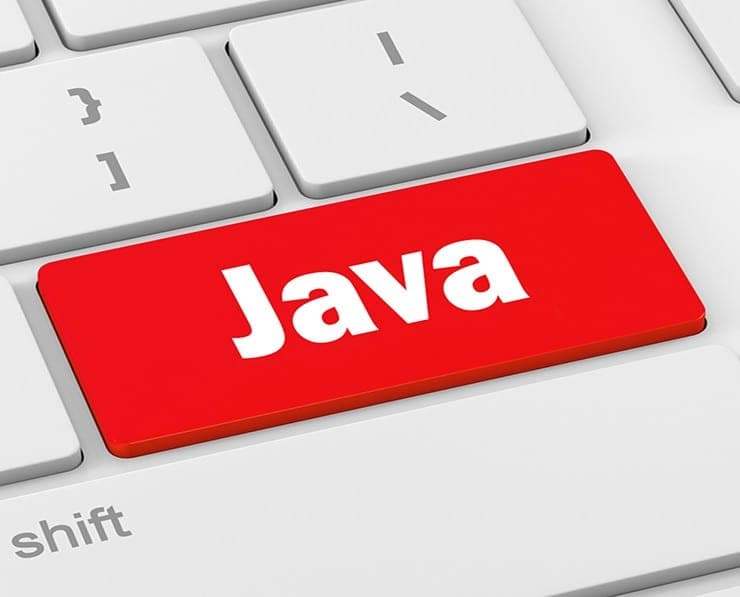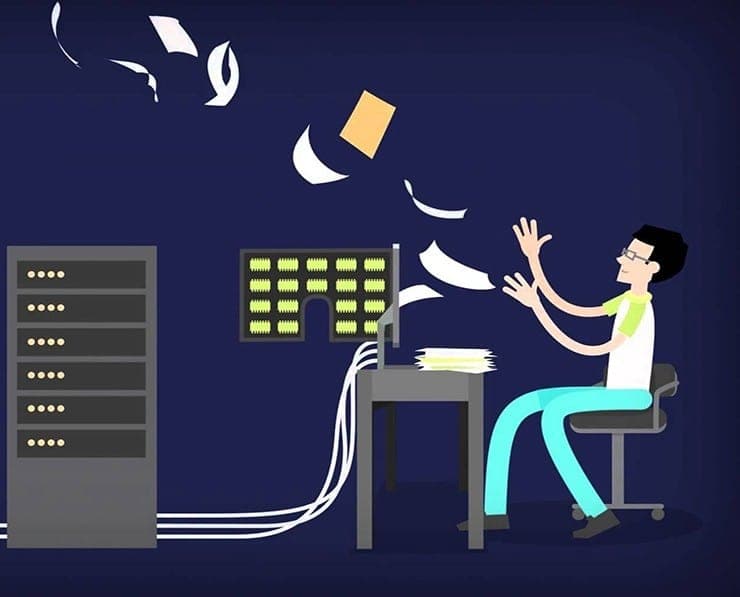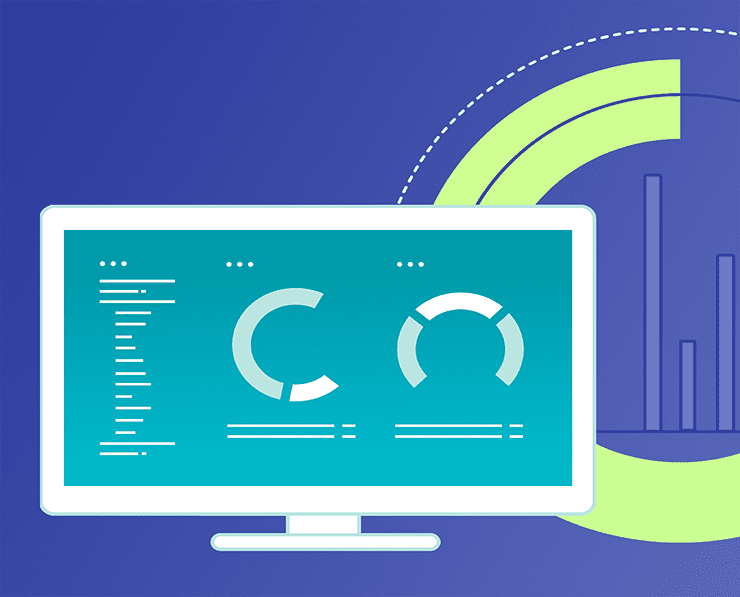Student Feedback
1z0-809: Java SE 8 Programmer II Certification Video Training Course Outline
Java Class Design
Advanced Java Class Design
Generics and Collections
Lambda Built-in Functional Inter...
Java Stream API
Exceptions and Assertions
Use Java SE 8 Date/Time API
Java I/O Fundamentals
Java File I/O (NIO.2)
Java Concurrency
Building Database Applications w...
Localization
Java Class Design
1z0-809: Java SE 8 Programmer II Certification Video Training Course Info
Java SE 8 Programmer II 1Z0-809 Exam Preparation & Certification Guide
Practice questions with detailed explanations to evaluate readiness for the Oracle Certified Professional (OCP) Java SE 8 Programmer II exam.
What You Will Learn From This Course
This course provides a complete roadmap to mastering the Java SE 8 Programmer II certification and equips learners with practical skills to develop advanced Java applications. By the end of the course, learners will be able to design and implement robust Java classes, utilize object-oriented programming concepts effectively, write clean and efficient code using Lambda expressions, and apply functional programming techniques. The course will also introduce database connectivity using JDBC, advanced file and I/O operations, and Java concurrency. Participants will gain hands-on experience with Java Streams, functional interfaces, and modern date/time APIs, enabling them to solve real-world programming challenges with confidence. This course is carefully designed to provide both conceptual understanding and practical application, ensuring learners are fully prepared for the OCP 1Z0-809 exam and related upgrade exams.
Key outcomes of the course include mastering advanced Java class design, functional programming, collections and generics, Stream APIs, exception handling, localization, concurrency, and database connectivity. By the end of the course, learners will have the ability to develop enterprise-level Java applications that are efficient, maintainable, and scalable, while also improving problem-solving and software development skills that are highly valued in professional environments.
Learning Objectives
The main learning objectives of this course are designed to help learners progress from intermediate to advanced Java programming skills, ensuring complete readiness for certification and professional application.
• Understand and implement core object-oriented programming principles, including encapsulation, inheritance, polymorphism, and composition
• Develop advanced class designs using abstract classes, final classes, inner classes, and enumerations
• Create and use immutable and singleton classes for robust application design
• Write efficient and maintainable code using the static keyword in initialization blocks, variables, methods, and classes
• Utilize Lambda expressions and functional programming features to improve code readability and efficiency
• Apply generics and collections effectively, including ArrayList, TreeSet, TreeMap, ArrayDeque, and custom generic classes
• Implement the Java Stream API for collection processing, including filtering, mapping, sorting, and aggregation
• Use built-in functional interfaces from Java. Util. functions such as Predicate, Consumer, Function, Supplier, and UnaryOperator
• Develop code to handle exceptions, assertions, and custom exceptions using best practices for robust applications
• Work with Java SE 8 Date and Time APIs to manage temporal data, including LocalDate, LocalTime, LocalDateTime, Instant, Period, and Duration
• Perform input and output operations using both legacy I/O and NIO.2, including file handling, streams, and resource management
• Build localized applications by using Locale objects, resource bundles, and property files for internationalization support
• Create multithreaded applications using Java Concurrency API, Runnable, Callable, ExecutorService, parallel Streams, and the Fork/Join framework
• Connect to databases using JDBC, perform CRUD operations, and manage database resources efficiently
By achieving these objectives, learners will not only gain confidence in passing the Oracle Certified Professional Java SE 8 Programmer II exam but also acquire real-world programming skills applicable to enterprise software development.
Target Audience
This course is designed for a wide range of learners who are looking to enhance their Java programming knowledge and earn professional certification. The ideal participants include:
• Java developers seeking to upgrade their skills and achieve OCP certification
• Software engineers looking to deepen their knowledge of advanced Java concepts
• Programmers interested in mastering functional programming and Java Streams
• IT professionals aiming to enhance their employability by gaining Java SE 8 expertise
• Students and graduates in computer science or software engineering who want to pursue a career in Java development
• Professionals transitioning to Java development from other programming languages and aiming to establish a strong foundation in advanced Java concepts
This course caters to both self-paced learners and those preparing for professional exams, offering a comprehensive blend of theory, practical exercises, and real-world examples to meet industry requirements.
Requirements
To succeed in this course and fully benefit from its content, learners should have certain foundational knowledge and tools in place. These requirements ensure participants can focus on advanced topics without struggling with basic concepts.
• Access to a computer with a modern operating system such as Windows, macOS, or Linux
• Installed Java Development Kit (JDK) 8 or higher to write, compile, and run Java programs
• A reliable code editor or integrated development environment (IDE) such as IntelliJ IDEA, Eclipse, or NetBeans
• Basic familiarity with Java syntax, variables, operators, control structures, and methods
• Understanding of fundamental object-oriented programming concepts such as classes, objects, and inheritance
• Basic knowledge of exception handling, arrays, and loops
Meeting these requirements will allow learners to focus on mastering advanced topics, performing hands-on exercises, and preparing effectively for certification exams.
Prerequisites
Before starting this course, learners are recommended to have certain prior knowledge and skills to ensure a smooth learning experience. Prerequisites help learners fully engage with the course content and achieve the intended learning outcomes efficiently.
• Completion of a beginner-level Java programming course or equivalent experience
• Basic understanding of object-oriented programming principles and design concepts
• Familiarity with simple Java programs and the ability to write methods and classes
• Exposure to basic data structures such as arrays and collections
• Awareness of fundamental programming logic, including loops, conditionals, and simple algorithm design
• Basic understanding of file handling and input/output operations in Java is helpful but not mandatory
Having these prerequisites ensures that learners can immediately focus on advanced Java SE 8 topics, functional programming, multithreading, and database connectivity without being slowed down by foundational gaps. The course is structured to progressively build expertise, starting from Java class design, moving to functional programming, and culminating in advanced features such as concurrency and JDBC applications.
Course Modules / Sections
The Oracle Certified Professional Java SE 8 Programmer II course is structured into comprehensive modules that cover all key aspects of advanced Java programming, ensuring learners gain both theoretical knowledge and practical expertise. Each module is designed to build upon previous concepts while gradually introducing more complex topics, providing a logical progression for mastering Java SE 8 programming.
The course begins with foundational Java class design principles, exploring core object-oriented concepts such as encapsulation, inheritance, polymorphism, and composition. Learners will study the implementation of abstract classes, interfaces, and inner classes, as well as the correct usage of static and final keywords. This module ensures participants understand the structure and design of high-quality Java programs and can implement robust, maintainable code.
Following the class design, the course delves into advanced class concepts. Learners will explore singleton and immutable classes, enumerated types with methods and constructors, and advanced inheritance patterns. Special focus is given to overriding Object class methods, including hashCode, equals, and toString, enabling learners to create predictable and efficient Java applications. The module emphasizes best practices for designing scalable and reusable code that adheres to industry standards.
The generics and collections module introduces learners to Java’s powerful data handling capabilities. It covers generic classes and methods, as well as commonly used collection classes such as ArrayList, TreeSet, TreeMap, and ArrayDeque. Participants will also learn to implement the Comparable and Comparator interfaces, enabling effective sorting and ordering of objects. This module emphasizes practical applications, ensuring learners can manipulate complex data structures efficiently and confidently.
Lambda expressions and functional programming form a significant part of the course. Participants will understand functional interfaces, including Predicate, Consumer, Function, Supplier, and UnaryOperator, as well as their primitive and binary variations. The course provides hands-on practice in writing Lambda expressions, enabling learners to produce concise, readable, and maintainable code. Learners will also explore Java Streams and Stream pipelines, mastering operations such as filtering, mapping, sorting, collecting, and flattening data structures using flatMap.
Exception handling and assertions are addressed to equip learners with techniques for creating reliable applications. The course covers try-catch blocks, multi-catch, finally clauses, and try-with-resources statements. Participants will also learn to create custom exceptions and leverage assertions to validate code invariants, ensuring programs behave predictably under diverse conditions.
Date and time management is another essential module. Java SE 8 introduced a modern Date/Time API, and learners will explore LocalDate, LocalTime, LocalDateTime, Instant, Period, and Duration. They will also learn to handle time zones, daylight saving changes, and formatting requirements. This module prepares learners to work with temporal data efficiently in enterprise applications.
Input and output (I/O) operations are covered in depth, including both legacy Java I/O and the newer NIO.2 framework. Learners will read and write files using FileReader, FileWriter, BufferedReader, BufferedWriter, ObjectInputStream, ObjectOutputStream, and other classes. The course also addresses path manipulation, file operations, and integrating Streams with NIO.2 for advanced file processing.
Localization and internationalization are included to help learners build globally adaptable applications. Participants will use Locale objects, property files, and resource bundles to develop programs that can support multiple languages and regional formats. This module ensures learners can design software suitable for global markets.
Concurrency is a critical module that covers multithreading and parallel processing. Learners will create threads using Runnable and Callable interfaces and manage them with ExecutorService. The course also introduces advanced concurrency tools such as synchronized blocks, atomic variables, concurrent collections, CyclicBarrier, CopyOnWriteArrayList, Fork/Join Framework, and parallel Streams. Participants will learn to identify and resolve common concurrency issues such as deadlocks, livelocks, starvation, and race conditions.
Finally, the JDBC module equips learners with database connectivity skills. Participants will understand core JDBC interfaces, connect to databases using DriverManager and JDBC URLs, submit queries, retrieve results, and manage database resources efficiently. This module ensures learners can integrate Java applications with relational databases, perform CRUD operations, and handle data reliably.
Key Topics Covered
The course covers an extensive range of topics essential for both certification and real-world Java development. These topics are carefully selected to align with the Oracle 1Z0-809 exam objectives and to provide learners with practical expertise in advanced Java programming.
Java Class Design is a primary topic, including encapsulation, inheritance, polymorphism, and composition. Learners will gain hands-on experience in designing high-quality classes and implementing reusable components. Advanced Class Design topics such as abstract classes, final classes, inner classes, enumerations, and singleton classes are included to ensure mastery of complex object-oriented principles.
Generics and Collections are key topics, covering the creation and use of generic classes, arrays, lists, sets, maps, and deques. Learners will explore interfaces like Comparable and Comparator for sorting and ordering, and apply Streams to manipulate collections effectively. Filtering, mapping, sorting, grouping, and partitioning using the Java Stream API are emphasized to prepare learners for modern Java development practices.
Lambda expressions and functional interfaces are thoroughly covered, including Predicate, Consumer, Function, Supplier, UnaryOperator, and their variations. Learners will implement functional programming patterns and integrate Lambda expressions with Stream operations to write concise and maintainable code.
Exception Handling and Assertions are addressed to develop robust and error-resistant applications. Participants will explore custom exceptions, try-with-resources, multi-catch statements, and validation using assertions.
Java SE 8 Date/Time API topics include LocalDate, LocalTime, LocalDateTime, Instant, Period, Duration, and handling time zones and daylight saving changes. Learners will also focus on formatting, parsing, and managing temporal data efficiently.
Input/Output (I/O) topics cover legacy I/O and NIO.2, including reading and writing files, using buffered streams, object streams, and managing file paths and metadata. The course also integrates Stream API for advanced file operations.
Localization and Internationalization include working with Locale, property files, and resource bundles, enabling learners to create global-ready applications.
Concurrency topics include creating and managing threads, ExecutorService, synchronized blocks, atomic variables, concurrent collections, Fork/Join Framework, and parallel Streams. Learners will also identify and prevent concurrency issues such as deadlocks and race conditions.
JDBC topics cover connecting to databases, executing queries, handling result sets, and managing database resources efficiently. Learners will also explore creating prepared statements and integrating database operations into Java applications.
Teaching Methodology
The teaching methodology of this course is designed to combine theoretical knowledge with practical application, ensuring learners acquire both understanding and hands-on experience. Instruction begins with conceptual explanations of each topic, accompanied by examples to illustrate the application of concepts in real-world scenarios. This approach helps learners internalize principles before moving on to coding exercises.
Interactive coding sessions form a core part of the methodology. Learners are guided through coding challenges, exercises, and project-based tasks to apply what they have learned. This practical approach reinforces understanding and builds confidence in writing efficient Java code. Participants will frequently practice implementing advanced class structures, Lambda expressions, Stream operations, exception handling, and multithreaded applications.
The course emphasizes problem-solving and analytical thinking. Learners are encouraged to analyze coding problems, design solutions using best practices, and implement them efficiently. Through repeated exercises and application of concepts, participants develop the skills to handle complex programming tasks effectively.
Regular assessments and self-evaluation opportunities are embedded in the teaching methodology. Learners receive feedback on exercises, projects, and coding practices, allowing them to identify areas for improvement and refine their skills continuously.
The course also integrates modern development tools and practices. Learners will use popular IDEs such as IntelliJ IDEA, Eclipse, or NetBeans, and leverage JDK 8 features, Maven, and Git for version control and project management. By combining theory, practice, and tools, learners are prepared for both certification exams and real-world Java development challenges.
Assessment & Evaluation
Assessment and evaluation in this course are designed to ensure learners achieve mastery of Java SE 8 programming concepts and are fully prepared for the Oracle Certified Professional Java SE 8 Programmer II exam. The evaluation process includes continuous assessments, practical coding exercises, module-based assignments, and mock exams.
Practical exercises are an essential component of assessment. Learners will complete coding challenges at the end of each module, covering topics such as class design, Lambda expressions, Streams, exception handling, I/O operations, concurrency, and JDBC. These exercises provide hands-on experience and reinforce understanding of concepts, ensuring learners can apply knowledge effectively in real-world scenarios.
Module-based assignments are used to evaluate learners’ ability to integrate multiple concepts in a cohesive solution. Assignments may involve designing complex class structures, implementing multithreaded applications, processing data using Streams and Lambda expressions, or creating database-driven Java applications. Learners are required to submit assignments for review and receive feedback to improve their coding practices and problem-solving skills.
Mock exams simulate the Oracle 1Z0-809 exam environment, providing learners with an opportunity to assess their readiness. These assessments cover all exam objectives, including functional programming, advanced Java concepts, concurrency, database connectivity, and I/O operations. Learners gain familiarity with exam formats, time management, and question types, enhancing confidence for the actual certification exam.
Continuous feedback and self-evaluation are integral to the assessment methodology. Learners are encouraged to reflect on their coding practices, identify mistakes, and optimize solutions. Instructors provide guidance, corrections, and recommendations for improvement, ensuring learners progress steadily towards mastery.
Performance evaluation also emphasizes practical application. Learners are assessed not only on theoretical knowledge but also on their ability to implement efficient, maintainable, and scalable Java solutions. By the end of the course, participants will have demonstrated proficiency in advanced Java SE 8 programming, functional programming, concurrency, JDBC, and I/O operations, ensuring readiness for certification and real-world software development challenges.
Benefits of the Course
This course offers a wide range of benefits for learners seeking to advance their Java programming skills and achieve Oracle Certified Professional Java SE 8 Programmer II certification. One of the primary advantages is the ability to gain in-depth knowledge of advanced Java concepts, including class design, functional programming, generics, collections, Streams, exception handling, concurrency, and database connectivity. By mastering these areas, learners can design and develop robust, efficient, and maintainable Java applications suitable for professional and enterprise environments.
Another significant benefit is the preparation for professional certification. The course aligns fully with the objectives of the Oracle 1Z0-809 exam, ensuring learners acquire the skills and understanding necessary to pass the exam confidently. Participants gain familiarity with real-world coding scenarios, exam-style challenges, and practical examples that reinforce both theoretical knowledge and hands-on experience. This combination ensures learners are fully prepared for certification while also improving their practical programming capabilities.
The course enhances problem-solving and analytical skills. Learners are guided to think logically, analyze coding challenges, and implement efficient solutions using Java SE 8 features. Functional programming with Lambda expressions, advanced use of Streams, and database operations provide opportunities to tackle complex programming tasks effectively, fostering critical thinking and creativity.
Participants also benefit from a structured learning path that progresses from foundational concepts to advanced topics, ensuring a gradual but thorough understanding of Java programming. The practical exercises and coding challenges included in each module build confidence and proficiency, enabling learners to apply knowledge directly in professional environments.
Career advancement is another key benefit. Achieving the OCP Java SE 8 Programmer II certification demonstrates a high level of expertise and commitment, increasing employability, job prospects, and professional credibility. Developers can pursue roles in software development, system architecture, application design, and enterprise programming, leveraging the skills gained from this course to contribute effectively to high-performing teams.
The course also emphasizes best coding practices and industry standards. Learners will develop maintainable, reusable, and scalable code that follows Java conventions, object-oriented principles, and design patterns. This knowledge ensures participants are well-prepared to create high-quality software in professional settings.
Course Duration
The course is designed for comprehensive coverage of all essential Java SE 8 Programmer II topics, and the recommended duration depends on the learner’s pace and prior experience with Java programming. On average, participants can complete the course in approximately 8 to 12 weeks, assuming 10 to 12 hours of study per week. This timeframe allows sufficient time to grasp theoretical concepts, complete hands-on exercises, and practice coding challenges.
Each module is structured to balance theory, examples, and practical exercises, enabling learners to absorb and apply knowledge effectively. Beginners or learners with limited prior experience in advanced Java programming may require additional time to review foundational topics, while experienced Java developers may progress more quickly.
The course duration also accommodates self-assessment and practice sessions, including mock exams, coding exercises, and project-based assignments. These activities ensure learners can reinforce their understanding and gain confidence in their ability to tackle both real-world Java applications and exam scenarios.
Flexible pacing allows learners to revisit modules, practice coding tasks, and focus on areas where they need additional reinforcement. This approach ensures mastery of complex topics such as concurrency, JDBC, functional programming, and Stream API operations without feeling rushed.
Tools & Resources Required
To gain the maximum benefit from this course, learners will need access to certain tools and resources that facilitate coding, testing, and learning advanced Java SE 8 concepts. A reliable computer with a modern operating system, such as Windows, macOS, or Linux, is essential for installing and running Java development tools and completing exercises efficiently.
The primary software requirement is the Java Development Kit (JDK) 8 or higher. The JDK includes the Java compiler, runtime environment, and development tools necessary for writing, compiling, and executing Java programs. Installing JDK 8 ensures compatibility with Java SE 8 features, Lambda expressions, Streams, and functional interfaces covered in the course.
An integrated development environment (IDE) is recommended for efficient coding, debugging, and project management. Popular IDEs for Java development include IntelliJ IDEA, Eclipse, and NetBeans. These tools provide features such as code completion, syntax highlighting, debugging capabilities, project structure management, and integration with version control systems, allowing learners to focus on coding rather than setup issues.
Version control systems such as Git are highly recommended for managing code and tracking changes throughout the course. Using Git allows learners to maintain organized project repositories, collaborate on exercises if working in groups, and practice professional development workflows. Learners can also use GitHub or GitLab to store their code, share projects, and review version histories.
Additional tools may include build automation software such as Maven or Gradle, which help manage dependencies, compile code, and automate project builds. These tools are widely used in professional Java development and provide valuable hands-on experience for learners preparing for real-world applications.
Learners will also benefit from supplementary resources, including official Java SE 8 documentation, reference books, online tutorials, and coding practice platforms. These resources provide examples, explanations, and guidance to reinforce understanding of advanced concepts, support hands-on exercises, and assist in exam preparation.
By combining the JDK, IDEs, version control systems, build tools, and reference materials, learners have a complete toolkit for mastering Java SE 8 programming. These tools ensure a smooth learning experience, enabling participants to practice coding, develop applications, and prepare effectively for the Oracle Certified Professional Java SE 8 Programmer II exam.
The course structure, combined with the recommended tools and resources, ensures learners can develop, test, and deploy Java applications efficiently. By the end of this course, participants will be proficient in advanced Java programming concepts, functional programming, concurrency, JDBC, and modern I/O techniques, equipped with the knowledge and skills to succeed in professional environments and achieve certification.
Career Opportunities
Completing the Oracle Certified Professional Java SE 8 Programmer II course opens a wide range of career opportunities for learners in the software development and IT industry. This certification demonstrates advanced Java programming skills, knowledge of object-oriented design, functional programming, concurrency, database connectivity, and modern Java SE 8 features. With these competencies, professionals are well-positioned to pursue roles in software development, enterprise application development, system architecture, and technical leadership.
One of the primary career paths available to certified learners is a software developer or a Java developer. In this role, professionals design, implement, and maintain Java applications across diverse industries, including finance, healthcare, e-commerce, and technology. The ability to write efficient, maintainable, and scalable code using Java SE 8 features makes certified developers highly valuable to employers seeking high-performing software solutions.
Enterprise application development is another promising career option. Organizations rely on complex software systems for operations, and certified Java professionals can contribute to building, deploying, and maintaining these systems. Mastery of advanced Java topics such as Streams, Lambda expressions, concurrency, and database connectivity equips learners to design enterprise-grade applications capable of handling large-scale data processing and multithreaded operations.
System architects and solution designers benefit from OCP certification by gaining the knowledge required to structure software systems effectively. Certified professionals can guide development teams, make design decisions based on best practices, and implement solutions that are both efficient and maintainable. Expertise in class design, design patterns, and object-oriented principles ensures that architects can produce robust, scalable, and flexible systems.
Multithreaded application development and concurrency management are in high demand in industries where performance and responsiveness are critical. Certified Java SE 8 Programmer II professionals can develop applications that execute multiple tasks simultaneously, manage synchronization effectively, and prevent concurrency issues such as deadlocks and race conditions. This expertise opens opportunities in sectors such as financial trading platforms, cloud computing, and real-time data processing.
Database-driven application development is another area where certification provides significant advantages. Professionals skilled in JDBC and database integration can design and implement applications that efficiently interact with relational databases. This capability is essential in roles such as backend developer, database application developer, or full-stack developer, where connecting front-end applications to robust database systems is a core requirement.
Cloud computing and enterprise solutions also present career opportunities. Many organizations use Java to develop scalable cloud-based applications, microservices, and distributed systems. Knowledge of Java SE 8 features, concurrency, and database connectivity enables certified professionals to contribute to cloud infrastructure, service-oriented architectures, and modern software development methodologies.
Certified Java professionals can also pursue roles in quality assurance, software testing, and performance optimization. Understanding advanced Java concepts allows them to design test cases, identify performance bottlenecks, and implement improvements in existing applications. This analytical and technical expertise makes them valuable assets in development teams focused on delivering high-quality software products.
Furthermore, Java SE 8 certification enhances opportunities for freelance and consultancy work. Professionals with advanced knowledge of Java, functional programming, and enterprise application development can provide consulting services, develop custom software solutions, and contribute to projects requiring specialized Java expertise. Certification increases credibility, builds client trust, and provides a competitive advantage in the freelance market.
The course also supports career progression into technical leadership and management roles. Developers who demonstrate expertise in Java SE 8 and obtain certification can advance to positions such as team lead, project manager, or software development manager. In these roles, professionals oversee development teams, ensure adherence to coding standards, implement best practices, and guide projects from conception to deployment. Certification validates their technical competency and leadership potential.
Industry demand for Java developers continues to grow, as Java remains one of the most widely used programming languages in the world. Organizations across multiple sectors rely on Java for its stability, scalability, and maintainability. Professionals with OCP Java SE 8 certification are therefore highly sought after, providing both job security and opportunities for career growth.
The skills gained through this course also position learners to work on emerging technologies such as big data, artificial intelligence, and Internet of Things (IoT) applications, where Java is frequently used for backend development and integration. Proficiency in functional programming, concurrency, and database management equips certified professionals to tackle complex programming challenges in cutting-edge projects.
Certified learners benefit from networking opportunities, professional recognition, and increased credibility in the IT industry. OCP certification serves as proof of advanced knowledge and skills, which can lead to promotions, higher salaries, and access to specialized roles that require expertise in Java SE 8 programming.
By completing the course, learners are fully prepared to take on challenging technical roles, contribute to high-quality software development projects, and advance their careers as proficient and certified Java SE 8 programmers. The combination of practical skills, theoretical understanding, and professional recognition opens doors to a wide array of career paths in software engineering, application development, enterprise solutions, and technology leadership.
Conclusion
The Oracle Certified Professional Java SE 8 Programmer II course provides a comprehensive and structured path to mastering advanced Java programming. Covering topics such as class design, object-oriented programming, functional programming, Lambda expressions, Streams, generics, collections, exception handling, I/O operations, concurrency, and database connectivity, the course equips learners with the skills required to develop efficient, maintainable, and scalable Java applications.
Participants gain a deep understanding of Java SE 8 features and are guided through practical exercises, real-world coding challenges, and project-based assignments. This approach ensures not only exam readiness for the OCP 1Z0-809 and related upgrade exams but also the ability to apply knowledge effectively in professional development environments. Learners emerge with both conceptual clarity and practical expertise, capable of solving complex programming problems and delivering high-quality software solutions.
The course also emphasizes modern software development practices, including best coding standards, design patterns, and the use of development tools such as IDEs, version control systems, and build automation tools. This integration of technology and methodology prepares learners to work in professional teams, collaborate effectively, and manage development projects with confidence.
Career benefits are significant, as the course opens doors to roles such as Java developer, software engineer, system architect, enterprise application developer, backend developer, and technical consultant. Advanced skills in concurrency, database connectivity, functional programming, and Stream processing provide learners with the technical edge necessary to succeed in highly competitive job markets. Certification also enhances professional credibility, increases earning potential, and supports career progression into leadership roles.
The course is accessible to a wide range of learners, including software developers, IT professionals, programmers, coders, and students pursuing careers in Java development. With clear learning objectives, structured modules, practical exercises, and assessment tools, participants can progress from foundational understanding to advanced mastery of Java SE 8 programming concepts.
By completing this course, learners not only gain the knowledge and skills to achieve the OCP Java SE 8 Programmer II certification but also develop the ability to create real-world Java applications that are efficient, scalable, and maintainable. The practical experience, combined with theoretical understanding, ensures readiness for both professional challenges and industry-recognized certification exams.
Enroll Today
Taking the step to enroll in the Oracle Certified Professional Java SE 8 Programmer II course is an investment in your professional development and future career. By joining the course, learners gain access to expert-led instruction, comprehensive modules, practical coding exercises, and a structured learning path that covers all essential topics for mastering Java SE 8 programming.
Enrollment provides the opportunity to develop advanced skills in object-oriented design, functional programming, concurrency, Stream API, database connectivity, I/O operations, and modern Java SE 8 features. Learners will also benefit from continuous assessment, feedback, and guidance to ensure steady progress and mastery of all concepts.
The course equips participants with both the knowledge and confidence to succeed in the Oracle Certified Professional Java SE 8 Programmer II exam, increasing professional credibility and employability. Certified learners can pursue rewarding career opportunities in software development, enterprise applications, cloud solutions, technical leadership, and more.
By enrolling today, you begin a structured, hands-on journey to becoming a proficient Java SE 8 programmer, ready to tackle advanced programming challenges, develop robust applications, and achieve industry-recognized certification. Take the step toward enhancing your Java programming skills, advancing your career, and unlocking new professional opportunities in the dynamic field of software development.













